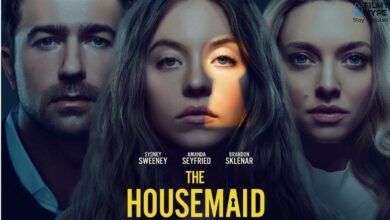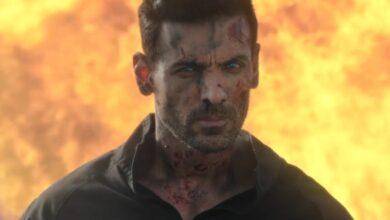Stolen Movie Review: Netflix Film With Hatred and Violence Among the Northern Sámi
Cast: Elin Oskal, Martin Wallström, Lars-Ánte Wasara, Ida Persson Labba, Pávva Pittja and Magnus Kuhmunen
Director: Elle Márjá Eira
Streaming Platform: Netflix
Filmyhype.com Ratings: 3.5/5 (three and a half stars)
Stolen is the new film added to the Netflix catalog for April 2024. Adaptation of the novel Stolen written by Ann-Helén Laestadius, the film, set in Swedish Lapland, is directed by director Elle Marka Eira and is available on the streaming platform from 12 April. Stolen which tells a thousand-year-old story of identity, dealing with important and delicate themes, never manages to have a real turning point in the story. The Sámi are told to us as an ancient people, deeply tied to their traditions but forced to live in a constantly changing modern society, which no longer seems to want to accept or consider them. As we will see in this review of Stolen, the film based on the novel of the same name by Ann-Helén Laestadius is a delicate tale of a community that fights to continue to exist and of its profound respect for nature and its laws: the voice The narrator is Elsa, first a child and then a young adult willing to do anything to protect the Sámi and above all the herds of reindeer on which their survival depends.
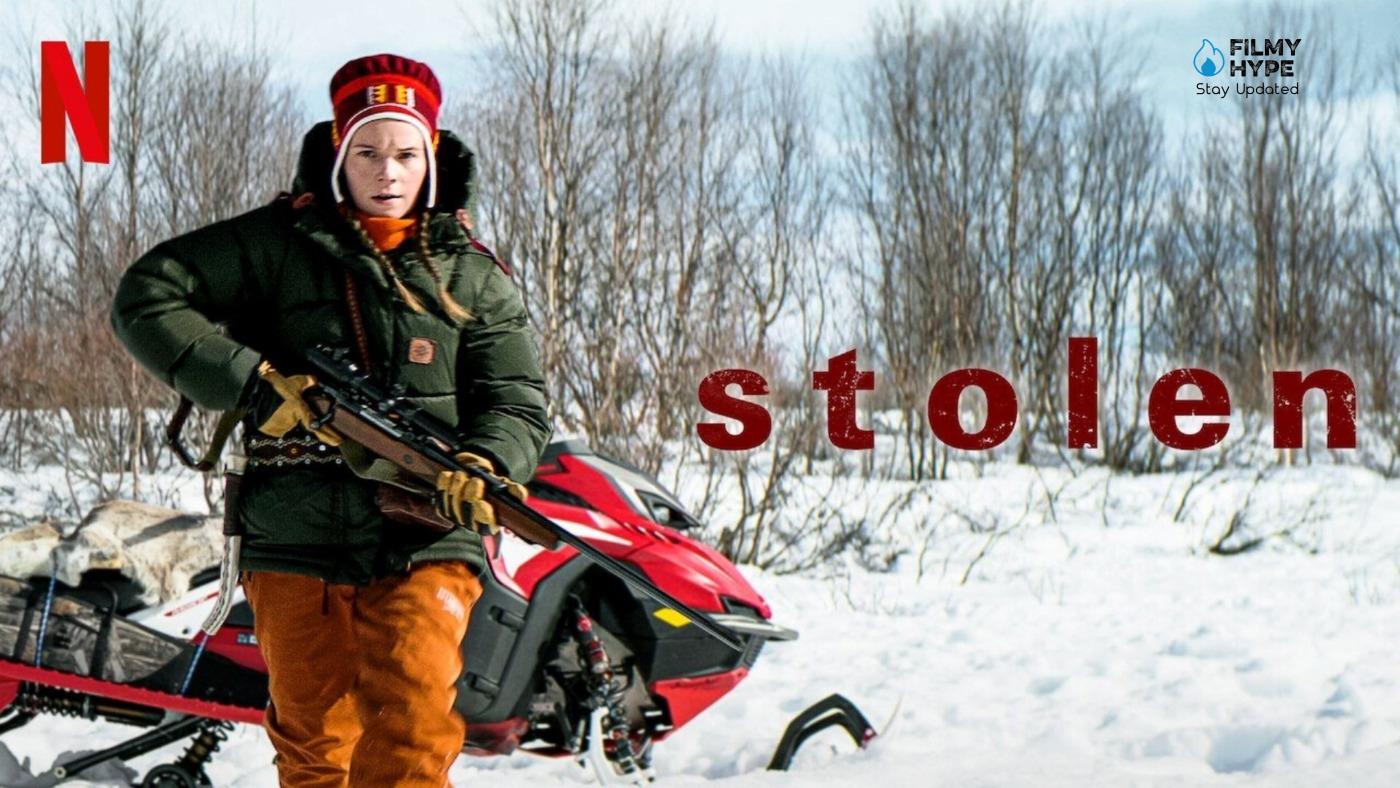
Her work is a very delicate and powerful look at a cold and merciless snow-covered world, but at the same time of astonishing beauty; a look that shows us the fundamental codependency between human beings and nature, and the necessary relationship between past and present. For centuries their territorial claim clashed with the colonization of Scandinavia. In fact, until the 1950s, before the Sami decided to settle down, forming urban agglomerations and obtaining representation in the Parliaments of Sweden and Finland, their lifestyle was nomadic and far from popular, so much so that it was still subject to xenophobic attacks, discrimination, and racism.
Stolen Movie Review: Story Plot
Elsa is the youngest daughter of one of the many reindeer herders living in northern Sweden, belonging to the Sámi community. She understood that her father’s and the rest of her family’s path is also hers, which begins with cutting the ears (to mark its belonging to her family’s herd) of the Nastegallu reindeer cub, an ancient tradition carried on for generations. However, the livelihood of the Sámi is constantly endangered by the presence of cruel poachers, who torture and kill their animals to sell the cute ones. Among them is Robert, a member of the local community of Swedish origins who kills – in front of a defenseless Elsa – even little Nastegallu. Terrified and aware that the police are not willing to do much to help the Sámi, Elsa will never report Robert.
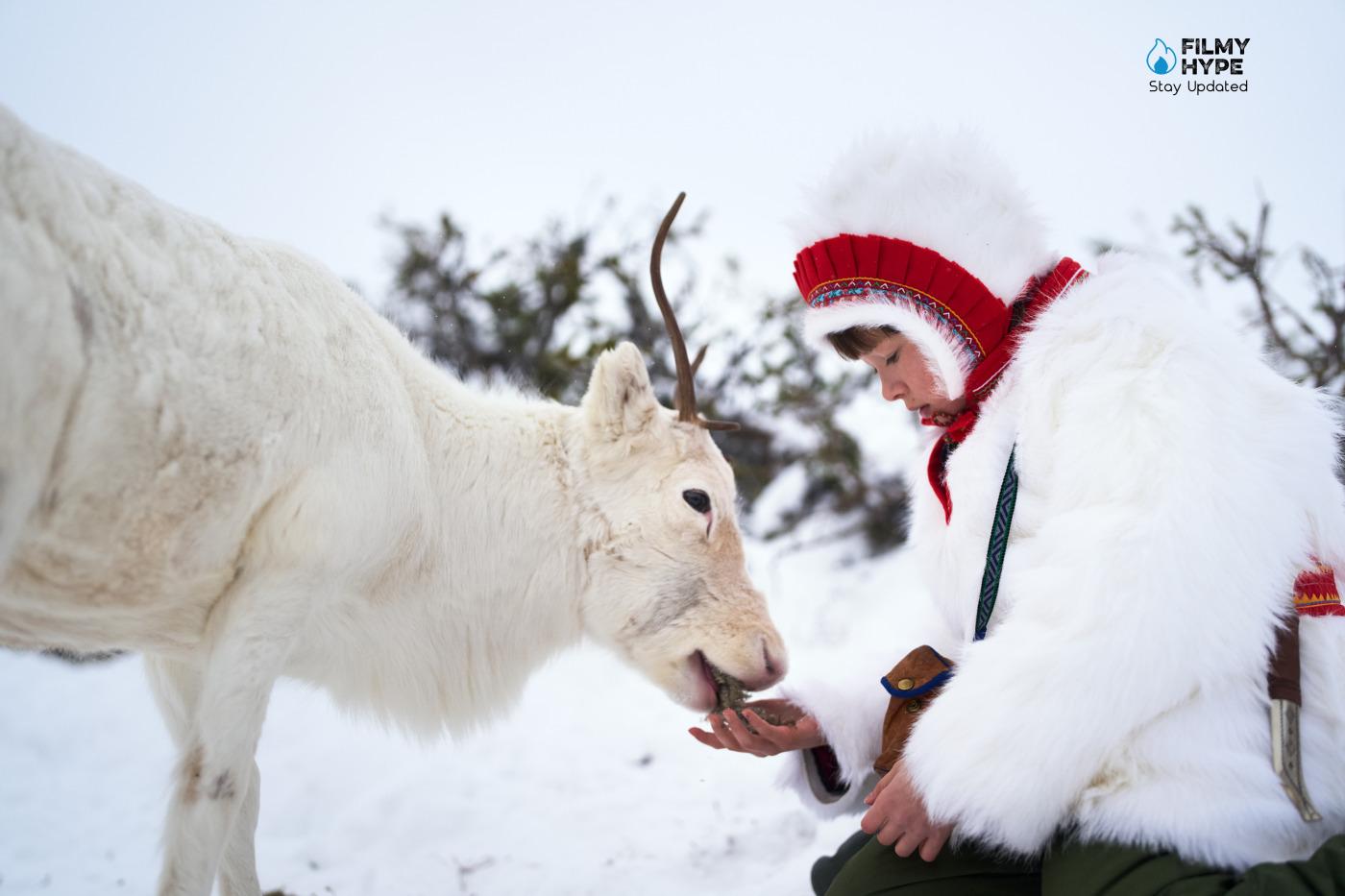
Years later, things have not changed, poachers are a constant threat that joins the new mine, which would like to expand on the reindeer migratory routes, but which the locals would like at all costs to bring new work to the area. Elsa is the only one who dares to speak out in defense of her community and to reveal to the national media what the Sámi and their reindeer have been suffering for years. However, her desire to make herself heard is not appreciated by Robert and her parents, who begin to plan to get rid of her…
Stolen Movie Review and Analysis
The Sami of Sweden are a people with a thousand-year history and a rich and diverse culture, distinguished by their close connection with nature and their unique language. Despite the challenges posed by urbanization and globalization, Sami culture continues to thrive through the preservation of traditions and the promotion of language and cultural practices. Sami society is traditionally organized into family groups called Siida, who share resources and move together. These groups were led by an authority figure, often the eldest person, who had control over various aspects of daily life, such as hunting, fishing, and migration. Some Sami were nomads, while others lived in permanent settlements.
Traditional Sami dwellings include the goathi, a mobile hut covered in fabric, turf, or timber, and the lavvu, a temporary shelter used to follow reindeer herds. These homes were built with a focus on nurturing and nurturing nature, reflecting the Sami’s close connection to their environment. Sami culture is rich in unique traditions and practices, such as reindeer hunting, fishing, and traditional crafts. Sami music, in particular, is a key element of Sami culture, featuring traditional musical instruments such as the reindeer drum and Sami flute. Today, many Sami live in cities and work in various industries, but keep their culture and language alive through schools, cultural centers, and organizations that promote their language and culture. In Sweden, there are also institutions such as the Sami University College in Kautokeino, which offers training in the Sami language and other disciplines.
Physically indistinguishable from Swedes, except for the traditional clothes they wear to maintain their identity, the Sami are an indigenous people who live mainly in Norway, Sweden, Finland, and Russia. Sami culture is deeply rooted in tradition and nature, with a major reliance on reindeer, which are at the heart of their economy and cultural identity. In Sweden, the Sami are known for their unique language, which is one of the northernmost indigenous languages in the world. The Sami language is spoken by around 20,000 people in Sweden, Norway, Finland, and Russia. The Sami language is written in an alphabet based on the Latin alphabet, with some additional letters to represent specific sounds. Reindeer herders in Sweden mainly belong to the Sami people and raise these creatures for a variety of reasons related to their culture, economy, and subsistence.
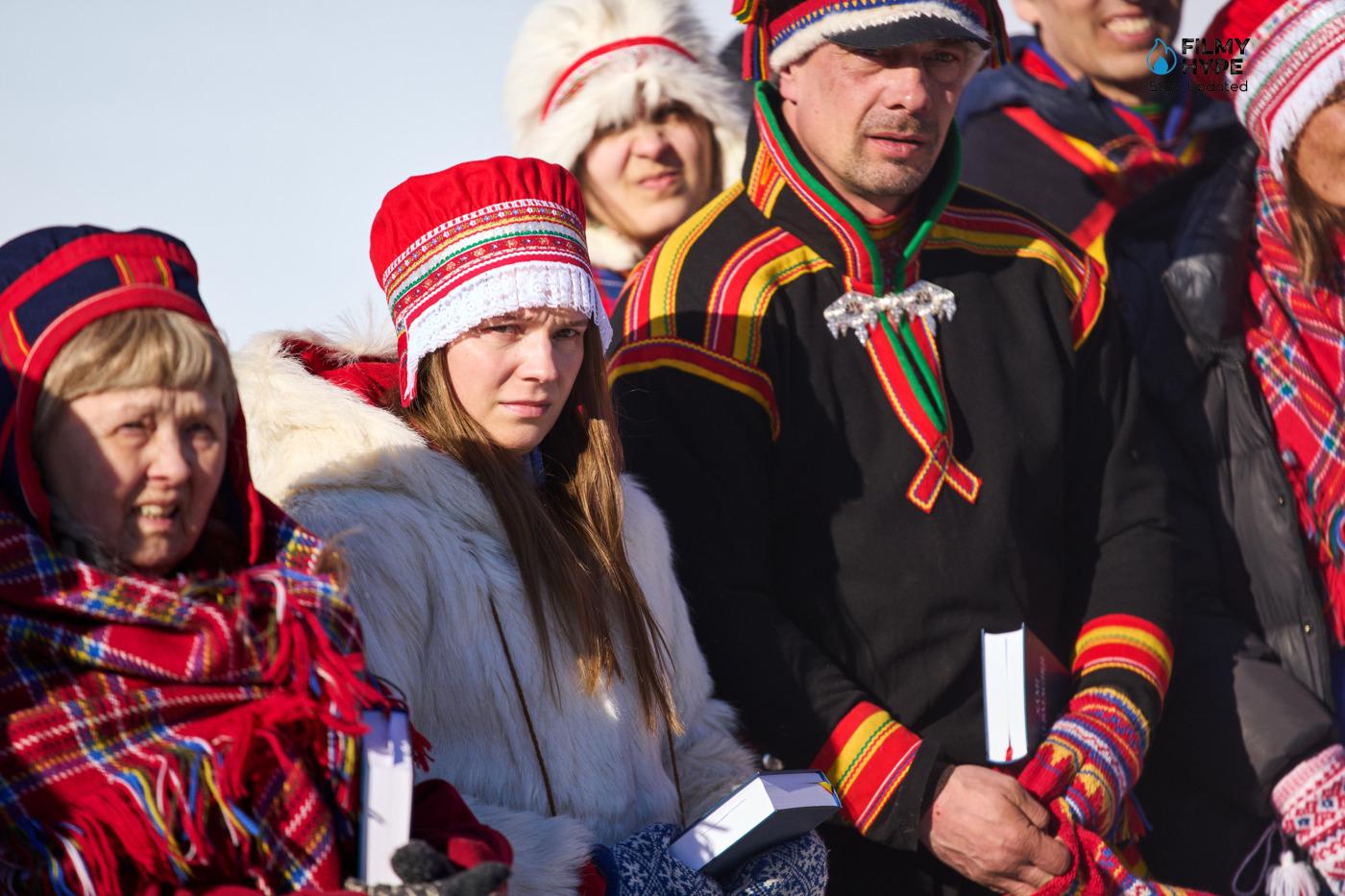
Reindeer are a central element of Sami life, providing meat, fur, and antlers – used for articles of clothing, accessories, and decoration – which are used both for direct consumption and sale. Furthermore, reindeer herding is used to provide sled-pulling animals and for the production of reindeer products. Additionally, some reindeer are kept in fenced areas during the winter to protect them from road accidents, a common problem in Sweden, where reindeer can easily become involved in vehicular traffic. Reindeer herding in Sweden is threatened by various factors, including climate change and the expansion of the wind and mining industries. These developments are reducing natural reindeer grazing, putting their survival and the future of herding at risk.
Cuddle an animal you just mutilated, a puppy. Mutilated uselessly and painfully only to indicate that it is somehow your responsibility, following an ancient tradition that should be erased. But this is then overturned, making mutilation a sort of fetish in the story of a little girl who witnesses the massacre of her “her” reindeer by a poacher (as far as we know, but things aren’t exactly like that). A story in which the Northern Lights are formed by the souls of those who are no longer here, but there are also climate changes, depression, and the contradictions of farmers who claim to love animals and then send them to the slaughterhouse or make fur from them. Stolen immerses us in the history of the Sami people but brings it to the present day to highlight all the incompatibilities of their lifestyle with today’s world.
A world made of hate, in which life – human or animal – no longer has any value, other than mere economic value. The contrast between those who want to carry on obsolete traditions and those who have never accepted those traditions in principle is the narrative fulcrum of the story. But the real, great theme of the film, in addition to climate change which dictates the law when it comes to traditions, is represented by the subtext relating to depression and suicide. Depression can be influenced by several factors, including access to health services (not surprisingly featured in the film), social isolation, and challenges related to cultural identity and discrimination.
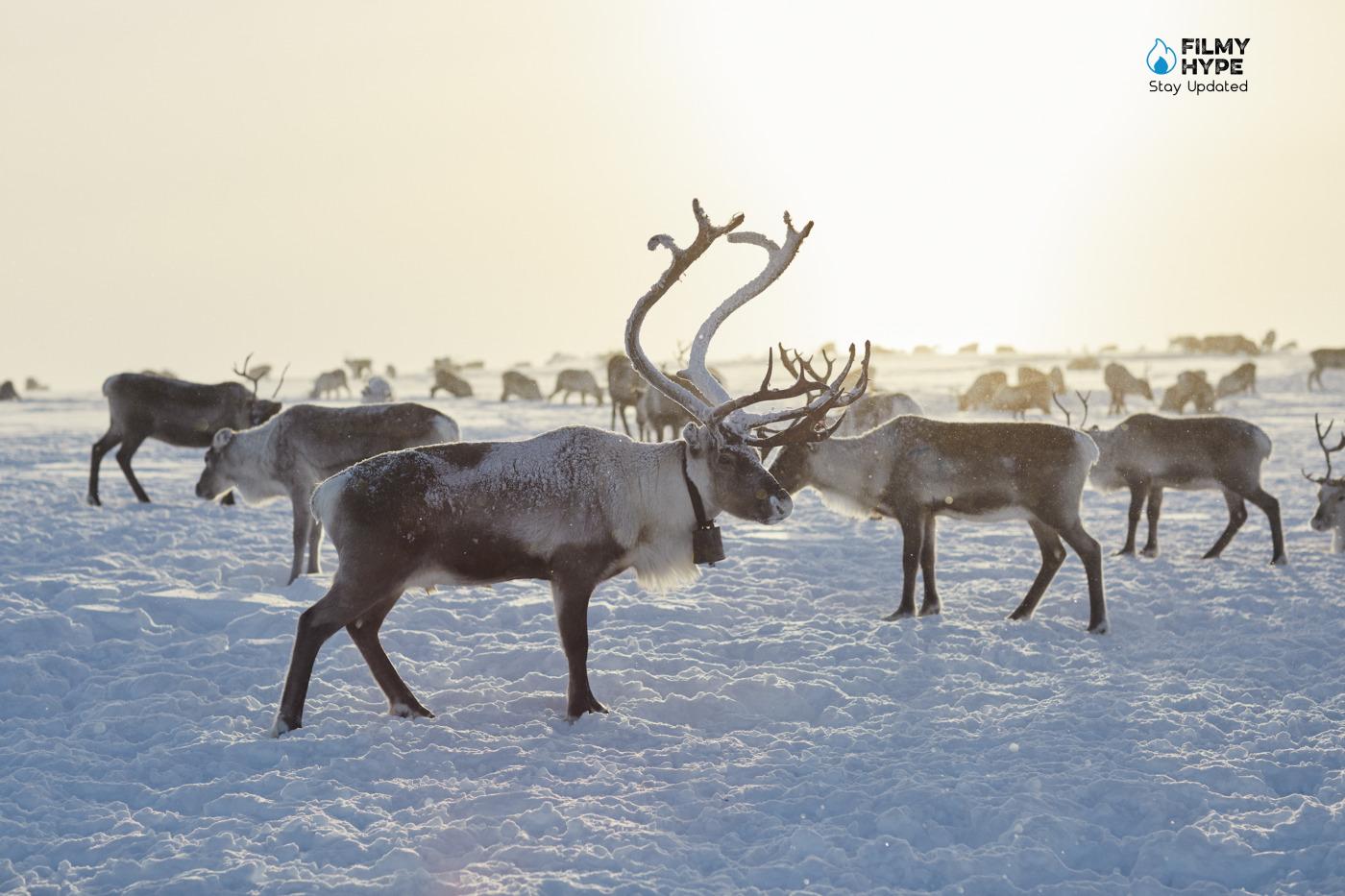
The Sami, like many other indigenous peoples, may face unique challenges, which often have consequences for rates of depression. These challenges may include discrimination, lack of official recognition of their language and culture, and difficulties in accessing adequate health services. Without forgetting the transition from semi-nomadic life to a more sedentary lifestyle, often associated with urbanization and industrialization and bringing significant changes to the daily life of the Sami, with a negative impact on mental health. Director and screenwriter Elle Márjá Eira explores themes of identity, loss, and redemption. The female gaze and point of view coincide with those of Elsa, the protagonist who everyone points out as a rebel when, in reality, she limits herself to doing completely normal things in the eyes of the spectators.
A great sadness pervades us too when faced with the spectacle of an anachronistic world that senselessly struggles to remain standing. We feel compassion for the animals, empathy for the protagonist, and a sense of bewilderment in witnessing something that persists in living on beliefs that any rational reasoning dismantles in a second. Claiming to respect nature does not mean exploiting it. The times in which the economy was based on livestock farming are destined to become increasingly distant, with all due respect to the planet and an industry that damages it irremediably. Not to mention the ethical issue: killing an animal is considered cruelty unless you kill it to eat or skin it. A concept full of sense from a legal point of view, but devoid of coherence from an external point of view, i.e. that of the spectator.
Reindeer, after all, are the animals that pull Santa’s sleigh. Who would ever want to see them reduced to carcasses for economic purposes? These are the moral and ethical challenges that Stolen effectively confronts us with. Each spectator is left with their own sensitivity, their own idea of nature and the natural, and their own feelings towards animals and ethnic minorities. One thing, only one, is undeniable: if you manage to spark a debate, be it between several people or an intimate and solitary reflection, you have achieved your goal. And your film is unlikely to be forgotten quickly.
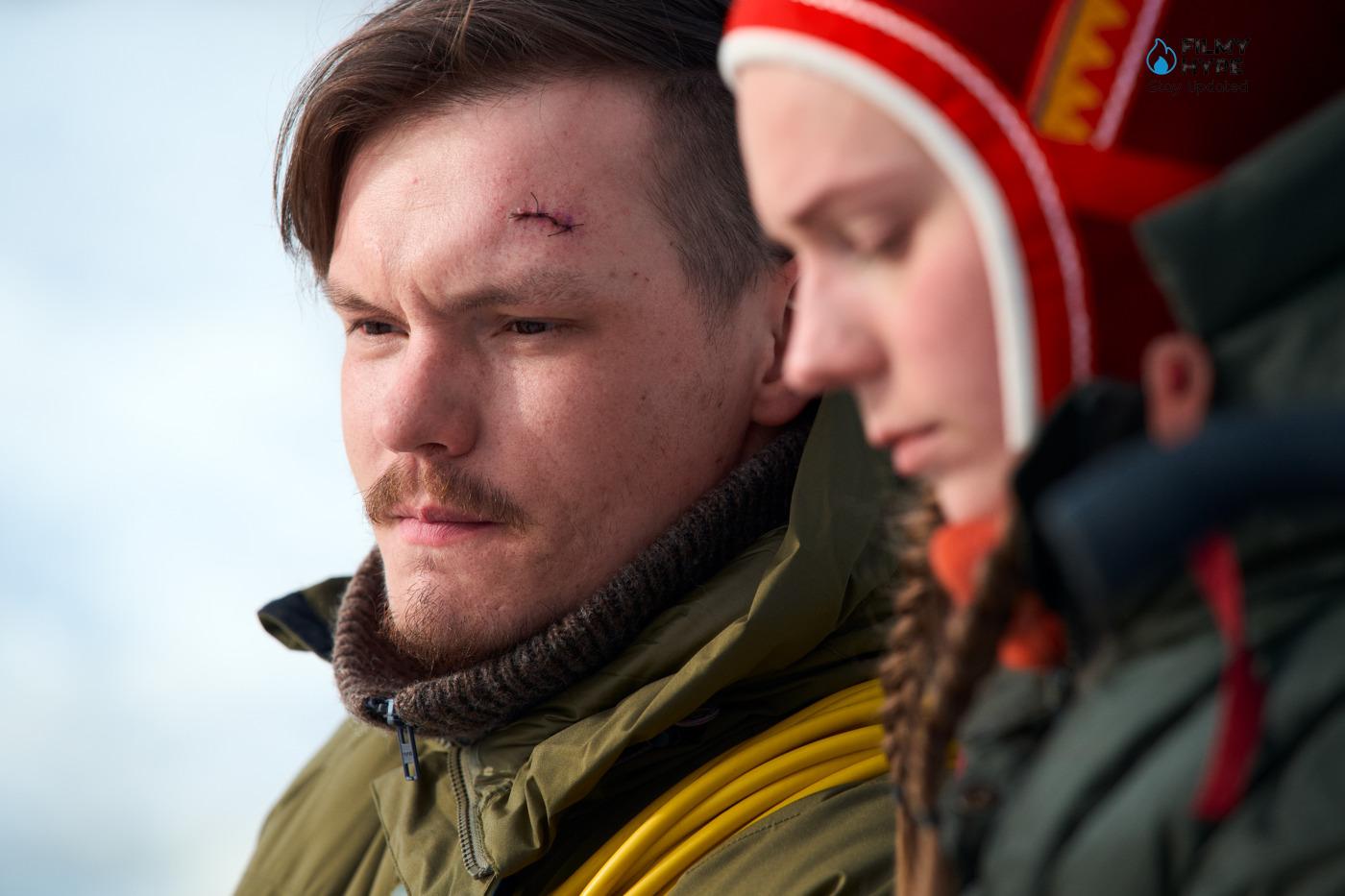
Stolen is a complex and layered dramatic story, which puts aside the thriller genre – which is only present in a minimal part of the narrative – to focus on the portrait of the Sámi people done from Elsa’s perspective. The interest of director Elle Márjá Eira is to tell the story of a community that is disintegrating, on the one hand, due to the contempt of the Swedes with whom they are forced to live, which is also expressed in the continuous attacks of poachers on their reindeer, on the another because of the fewer and fewer young people who decide to stay and carry on the traditions of their fathers. Disintegration is also described as the internal torment of individuals; among the members of the Sámi community, some even choose to take their own lives or, like Elsa’s brother, are crushed by addictions.
Among the most successful elements of the film, in our opinion, is the representation of the nature in which the Sámi live, and the very close relationship they establish with their reindeer, who are real members of the community, whose death is mourned like that of human beings. The film covers several seasons and the corner of northern Sweden where the protagonists live changes and evolves, from winter to a bright but still cold and merciless summer. Elin Oskal, who plays Elsa as an adult, is convincing and intense, capable of supporting the narrative on her shoulders with her looks full of anger. It’s a shame that the rest of the supporting characters are less in-depth, but it is perhaps inevitable given the centrality of the protagonist. She’s only sorry that the thriller side of the story, which becomes increasingly important in the film, is a bit neglected compared to the rest and the right tension is never managed to capture the viewer. Stolen, unfortunately, is at times a little too slow: on the one hand, the dilated times of the story adapt perfectly to the lifestyle of the community she describes, on the other, however, it does not fully involve those who watch.
Stolen Movie Review: The Last Words
The film directed by Elle Márjá Eira is a delicate story that highlights the profound relationship between the Sámi and the nature that surrounds them, a relationship put in danger by the changing world. A fascinating story which however neglects its thriller side and does not balance the tones perfectly. In a world full of contradictions and with the theme of depression always present in the existence of those who live in extreme cold, fighting against attempts to erase every tradition, the film conquers with its immense snow-covered space, which seems to be infinite when merges with the horizon. It teaches us a lot about Sami culture while telling us the story of a young woman who tries to emancipate herself in a society that doesn’t reserve space for her. While Swedish citizens, physically indistinguishable from the Sami, consider them a minority to be mocked and eliminated. The tension is constant, the animal rights and environmentalist theme is very strong and speaks to us of the inconsistencies of a lifestyle that should continue, without giving up one’s identity.



